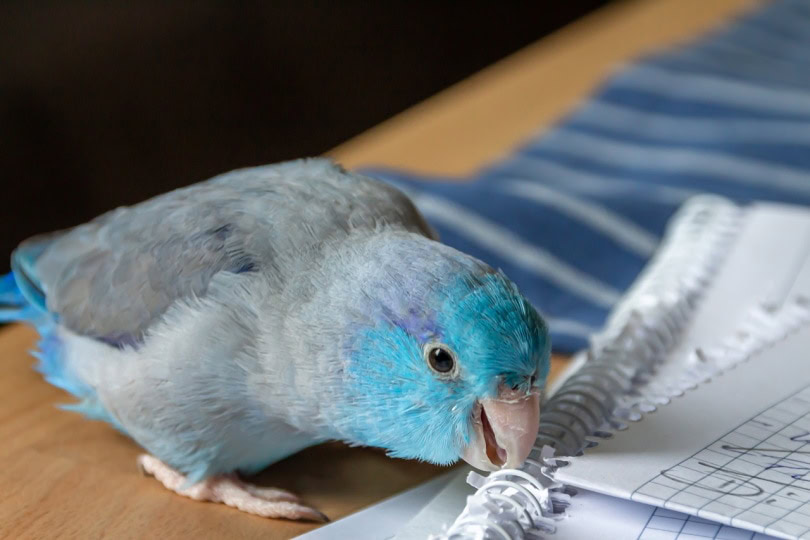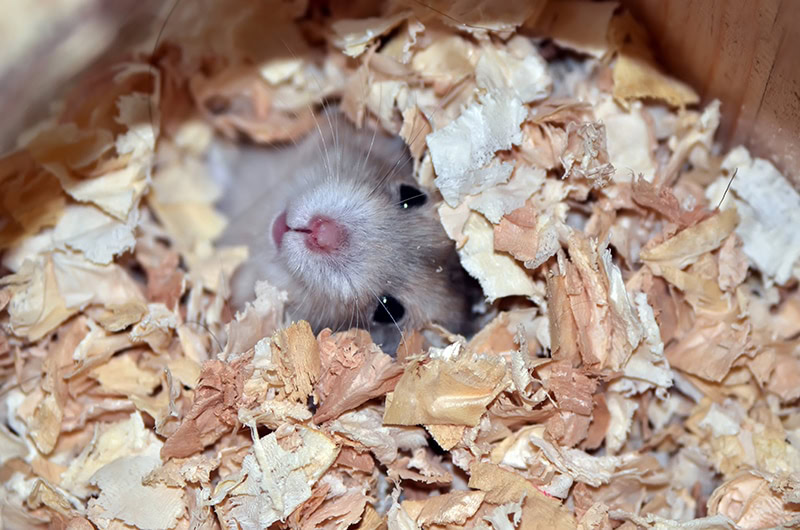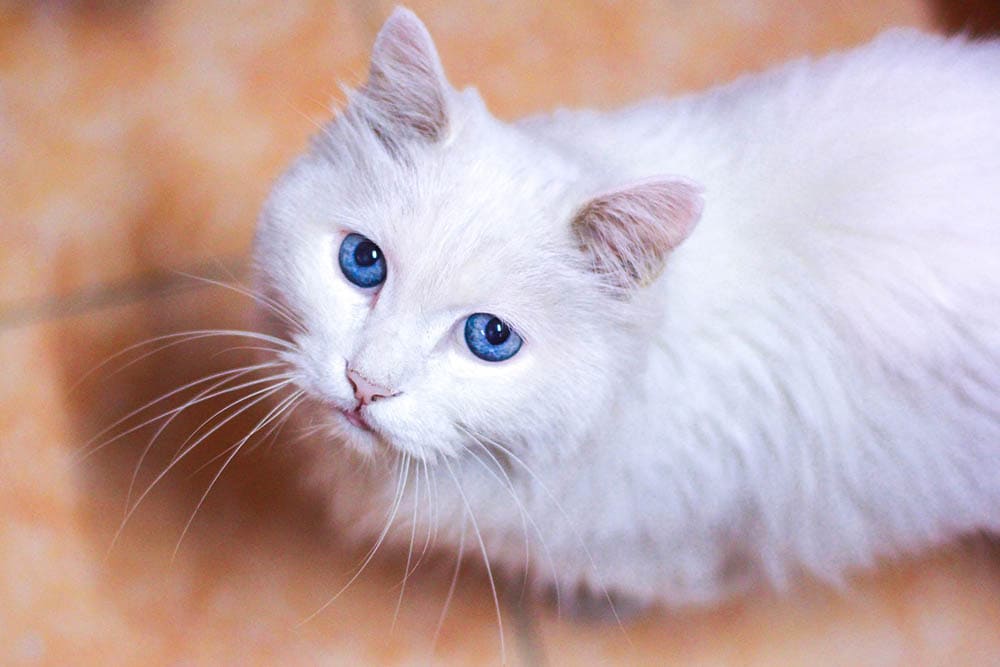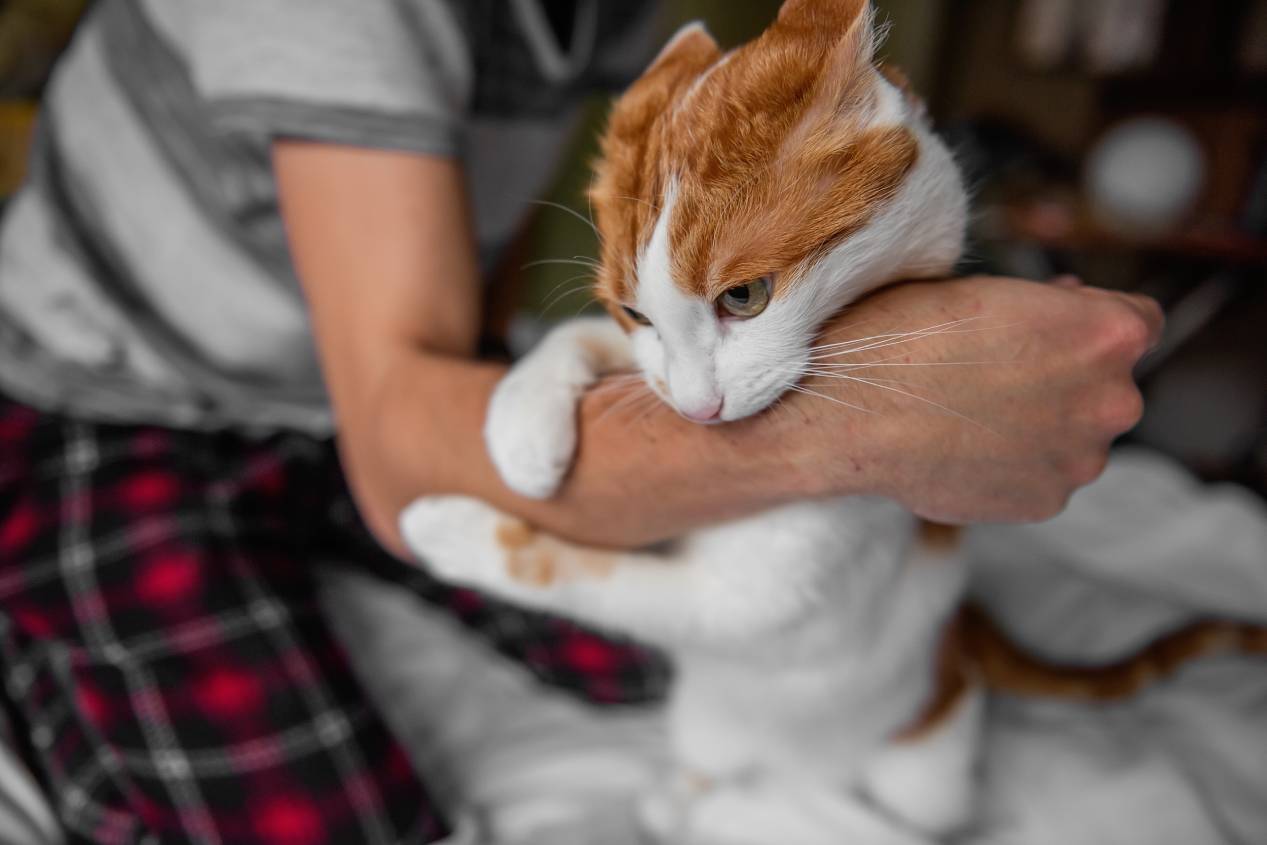VET APPROVED

The information is current and up-to-date in accordance with the latest veterinarian research.
Learn more »When you get a new pet parrotlet, it can take some time for both of you to get used to one another. For your bird, it takes time to adjust to the new people and surroundings; for the owner’s part, you might spend a lot of time wondering if your new feathery friend is okay. When you haven’t spent a lot of time around an animal, it can be hard to interpret their behaviors. A lot of new pet owners wonder whether their pet even likes them at all.
We are here to dispel any confusion you may have. In this article, we will discuss some signs that your parrotlet does, in fact, like you.

The 8 Signs that Your Parrotlet Likes You
1. Preening When You’re Nearby
Like all animals, birds need to stay clean to be healthy. A parrotlet’s way of cleaning their feathers is preening. When a bird preens themselve, they rubs their beak against their preen gland, or oil gland, in order to coat their feathers in oil. This helps keep them water-resistant and healthy.
Some people believe that preening is a fairly vulnerable activity; if your bird is uncomfortable around you, they are unlikely to preen in your presence. If you notice your parrotlet preening, you should take it as a sign that they feel comfortable around you!
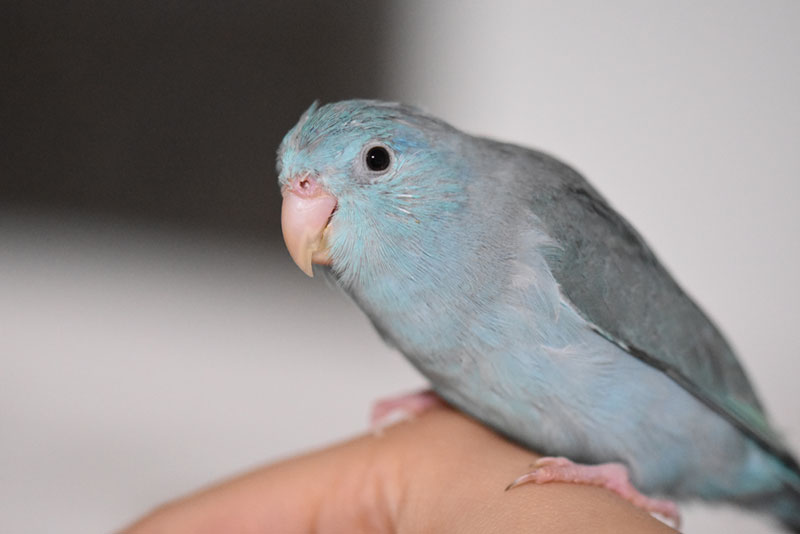
2. Grooming You
Like a cat or a dog that might try to lick you, your parrotlet may try to groom you. In the wild, parrots preen one another, so if you notice your bird gently chewing on you, you should understand this behavior as a gesture that means your parrotlet considers you to be one of their own. Don’t confuse grooming for biting, though; a bite will be a lot less subtle than preening behavior, and usually means your bird is scared or angry.
3. Dilated pupils
Unlike humans, birds can actually control the size of their pupils based on their mood. When a bird dilates their eyes, it can be a sign that they are excited or pleased. However, dilated eyes can also mean that your parrotlet is anxious, so pay attention to context clues. If your parrotlet’s pupils are dilated and they are doing at least one other thing on this list, that’s possibly (but not always) a very good sign!
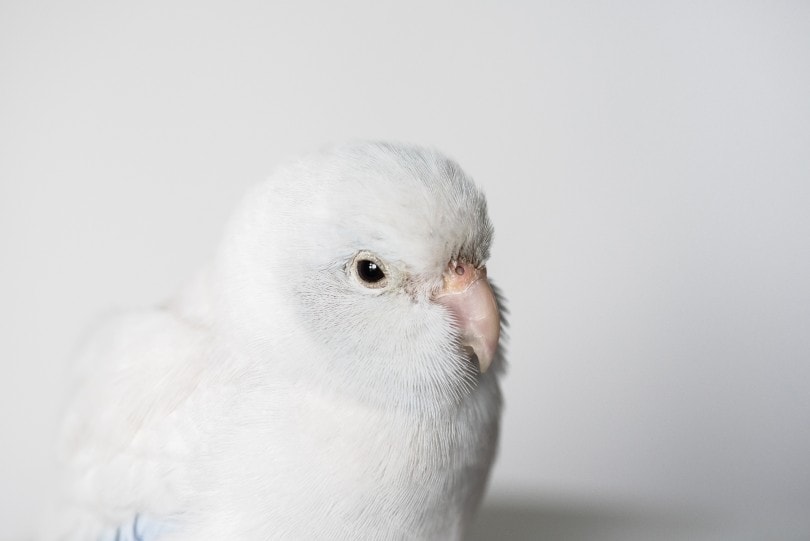
4. Regurgitating Their food
This is a weird one for us humans, but for birds, it’s perfectly natural. Bonded parrotlets in the wild regurgitate their food for one another. If your parrot does this to you, you should take it as a huge compliment! Of course, regurgitation is not the same as vomiting; if the behavior is accompanied by other signs of physical stress, it’s time for a visit to the vet.
5. Singing, Talking, or Whistling for You
It probably isn’t very surprising that a bird that whistles or sings for you is a happy bird. Of course, it can sometimes be hard to tell the difference between happy and anxious vocalizations, since many birds “scream” when they are excited.
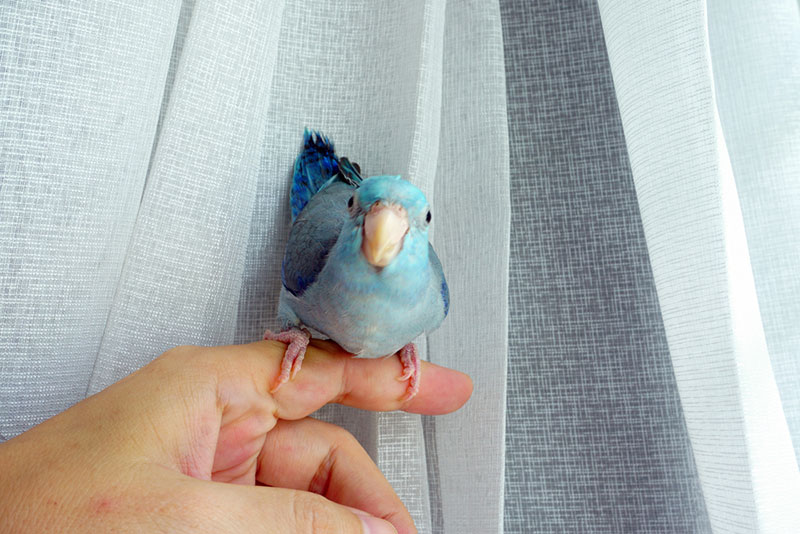
6. Tongue Clicking
A parrotlet that clicks their tongue at you is trying to get your attention, often in order to be picked up or pet. A bird that doesn’t like you wouldn’t want to encourage you to come near them, let alone touch them.
7. Fluffing feathers
When your parrotlet fluffs their feathers, it can have a few different meanings. Birds often do this when they are pleased. However, it could mean that your pet is feeling aggressive. Take note of the environment when your bird is exhibiting this behavior. Is there anything that could be irritating your parrotlet or making them feel territorial, such as another bird? If not, try slowly approaching your pet to see how them reacts. If they begin to click their tongue or talk to you, you will know the fluffing is a sign of happiness rather than aggression.
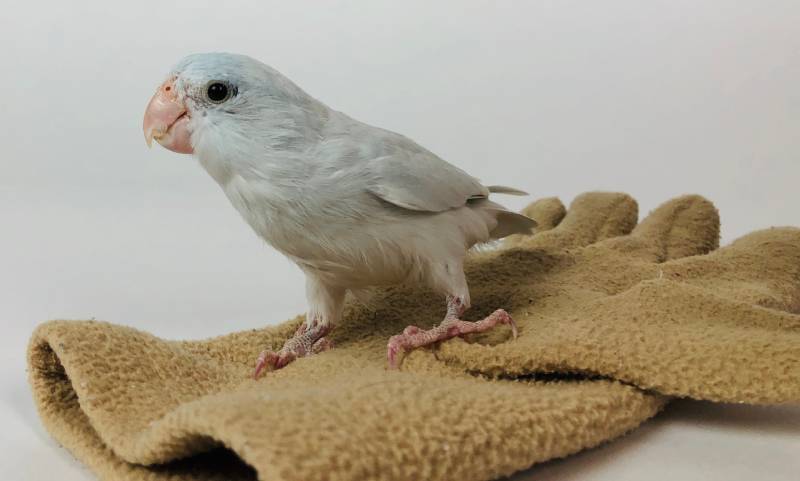
8. Mimicry
No, your parrotlet isn’t trying to mock you. If you catch your bird mimicking your speech or behaviors, this is a very clear sign that it likes you and wants to fit in with you.

Final Thoughts
Birds make all sorts of noises and gestures that can be confusing to humans, especially because many of those behaviors can have multiple meanings. It may take some time, but you will eventually learn to interpret your parrotlet’s behaviors. If you believe your bird does not like you, give them some space and gradually start spending more time interacting with them. Very few birds can’t be won over with plenty of treats and attention!
Featured Image Credit: klickblick, Pixabay
